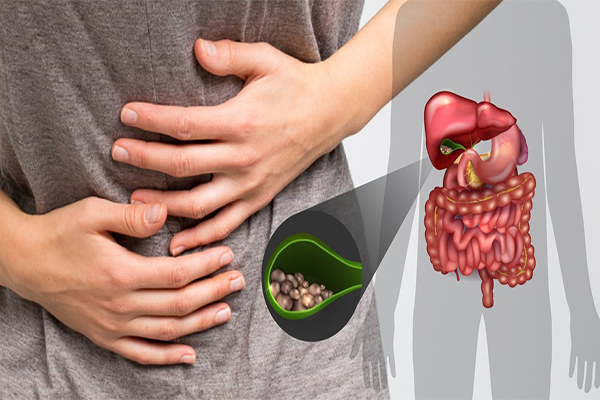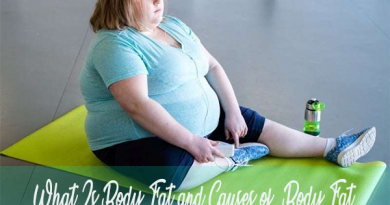Natural Remedies for Gallstones in Ayurveda
![]()
According to this Shloka Causes of Gallstones are
Due to the intake of unhealthy and spicy foods, the vitiated Kapha dosha gets mixed up with urine and enters the urinary tract and leads to the formation of stones.
(Reference: Sushrut Samhita (Nidan Sthan): Chapter-3 and shloka-4)
What are Gallstones?
As per Ayurveda Aspect
Gall stones are correlated with pittashmari. The word ashamri stands for a stone which is described in the Ayurveda texts. It is caused by the kaphaprakopaka nidanasevan which leads to the accumulation of Kapha dosha that produces symptoms like lethargy (alasya), gaurav (heaviness) and mandoshmata (decreased digestive fire). In Pittashya (gallbladder) there is an accumulation of Kapha which mixes with Pitta that leads to the formation of viscous material and causes obstruction in the passage of Vata Dosha. Due to this Vayu gets vitiated by its ruksha guna (dry nature) and converts this viscous material into a solid form which is called as pittaashamri.
In Ayurveda texts, the bile secretion in the gallbladder can be correlated with accha pitta due to the similarity in the location. This pitta is generated from the liver in the second stage of digestion and hence stored in the gall bladder and named as “pittaashya”. This saturation of cholesterol can be correlated with vikrit kaphasanchiti in pittashya in the Ayurveda texts.
As per Modern Aspect
The gall bladder is a small sac which is located on the right side of the body. Chemicals that exist in it can solidify into stone.
Gall stones are the lumps or the hardened deposition of digestive fluid that can form in the gall bladder. These develop in the gall bladder or bile duct when certain substances get harden. If the gall stone becomes trapped in the duct of gall bladder then it can trigger the intense abdominal pain and this type of abdominal pain is called biliary colic.
What are the Causes of the Gallstones?
When the compounds present in the gall bladder start accumulating such as calcium bilirubinate, calcium carbonate, and cholesterol, results in the formation of stones.
Stones are of Two Types
1. Pigment Gallstones
Formation of excessive bilirubin results in the formation of pigment stones. It is common among patients with liver diseases and any blood-related disorders.
2. Cholesterol Gallstones
Accumulation of too much cholesterol in the gallbladder results in cholesterol gallstones.
Risk Factors
- Obesity
- Females (particularly who had children)
- Age above 40
What are the Symptoms of Gallstones?
Initially, gallstones may cause no symptoms. But if the stone lodges in a duct then it can cause a blockage which results in various symptoms that may include
- Intense pain in the abdomen (center part or the upper right portion of the abdomen)
- Backache between the shoulder blades
- Nausea or vomiting
Other Common Symptoms That May Develop
- Rapid heartbeat
- Loss of appetite
- High fever
- Persistent pain
- Yellowish discoloration of skin and eyes
- Chills
- Diarrhea
- Confusion

What are the Home Remedies for Gallstones?
1. Vegetable Juices

It is essential to avoid fatty as well as fried foods and follow a strict diet containing vegetables and fruits. A study concluded that increasing the intake of vegetables minimize the risk of gallbladder stones. Vegetable juice made from cucumber, carrots, and beetroot is a good remedy for gallstones. Beetroot helps in cleaning the liver and provides strength to the gall bladder. Cucumber contains high water content. Follow this remedy for 2 weeks for better and effective results.
2. Milk Thistle

Milk thistle is also the other good home remedy for gallstones. As milk thistle contains flavonoids which act as antioxidants and helps in the repairing the liver. It has various health benefits on the liver that includes managing fatty liver, liver cirrhosis, alcohol, and viral hepatitis. Being a demulcent, it stimulates bile production. Increased bile production flushes out the gallstones and soothes the inflamed gallbladder. Boil crushed seeds of milk thistle in 3 cups of water and then steep it for 20 minutes. Strain it and add honey for taste. Drink it 3 to 4 times a day for effective results.
3. Peppermint

Peppermint contains an active compound called terpenes that can dissolve the gallstones effectively and terpenes also help to relax spasms and relieve biliary colic pain. Menthol is the active compound of peppermint oil. It aids digestion by stimulating the bile flow and other digestive juices. Higher dosage of it can be toxic. So, boil one cup of water and add dried peppermint leaves to it. Steep it for 5 to 10 minutes and add a little honey to it. Drink this tea twice daily for 4 to 5 weeks between the meals for the effective results.
4. Lemon Juice

Lemons are the richest source of fibers, minerals, and vitamins such as vitamin B and C, iron, calcium, potassium, zinc, and magnesium. Vitamin C present in it has antioxidant as well as disinfectant action. Vitamin C contains ascorbic acid which diminishes the risk of gallbladder stones. Peels and lemon juice reduce the accumulation of cholesterol and eliminate the waste products from the body which helps in faster recovery of the patient. Drink fresh lemon juice on an empty stomach daily. Follow this remedy for a week. You may add 4 tablespoons of lemon juice to a glass of warm water and drink this every day on an empty stomach.
5. Castor Oil

Castor oil helps ion minimizing and reducing the number of gallstones. This oil has an anti-inflammatory property that neutralizes the internal swelling and inflammation. Researchers said that a mixture of lemon and castor oil is quite successful in dissolving gall bladder stones.
Foods to be Taken
- Consume high fiber-rich diet.
- Take meals in small quantity and avoid large meals, as small quantity meals are easily digestible that reduces the risk of gallstones.
- Consume food at proper timings: Breakfast- before 9:30 am, lunch- before 1 pm and dinner- before 8:30 pm. Proper food timings will help you to prevent various health-related complications.
Foods that you Should Avoid
- Reduce the intake of fat-rich diet.
- Avoid fried and greasy foods.
- Avoid the consumption of caffeine-containing products and high fat-containing dairy products.





